Publications
Articles, publications, books, tools and multimedia features from the U.S. Institute of Peace provide the latest news, analysis, research findings, practitioner guides and reports, all related to the conflict zones and issues that are at the center of the Institute’s work to prevent and reduce violent conflict.
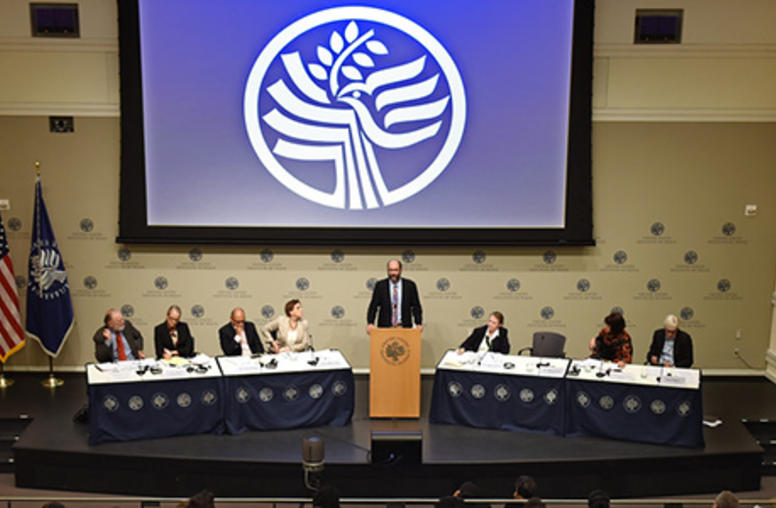
Colombia Considers War and Memory
A breakthrough in peace talks last month between Colombia’s government and the country’s biggest guerrilla group cements the role of victims in the process and has been hailed as a possible model for resolving conflicts elsewhere. Yet after 50 years of violence, a political accord on how to deal with the millions victimized by the war is just the first step. Hardened, bitter memories will risk rekindling conflict. Colombian peacebuilders say the way forward depends on an effective justice sys...
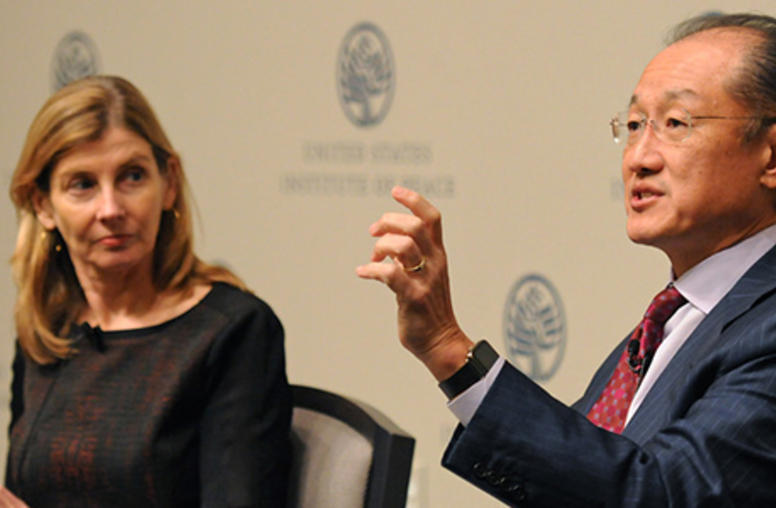
World Bank Chief Urges End to Extreme Poverty, Rethink for Development in Conflict Zones
World leaders must act to end extreme poverty in the next 15 years by addressing economic inequality that stems from wealth concentrated in the hands of a few and exacerbates conflict and instability, World Bank Group President Jim Kim said in an address at the U.S. Institute of Peace.
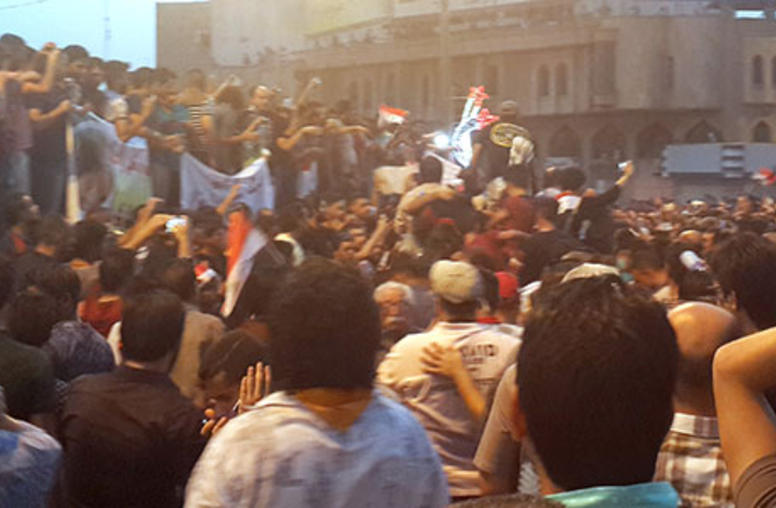
Q&A: Iraqi Protesters Demand Action on Corruption and Reforms
A growing tide of street protests has swept 11 of Iraq’s 18 provinces since mid-July and are scheduled to resume Oct. 2 after a pause for the Eid al-Adha holiday. Citizens’ anger over abysmal public services and rampant corruption had boiled over in July as temperatures soared above 130 degrees amid notoriously short electricity supplies. The persistence of the largely peaceful demonstrations emboldened Prime Minister Haider al-Abadi to introduce far-reaching measures to combat corruption and...
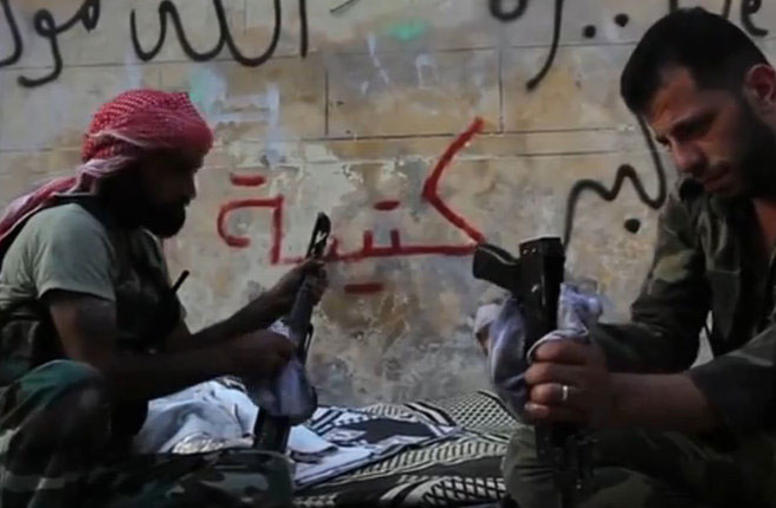
Four Lessons for Fighting Extremists – Without Guns
As the military campaign against the Islamic State stalls, it's time to turn to a civilian solution.
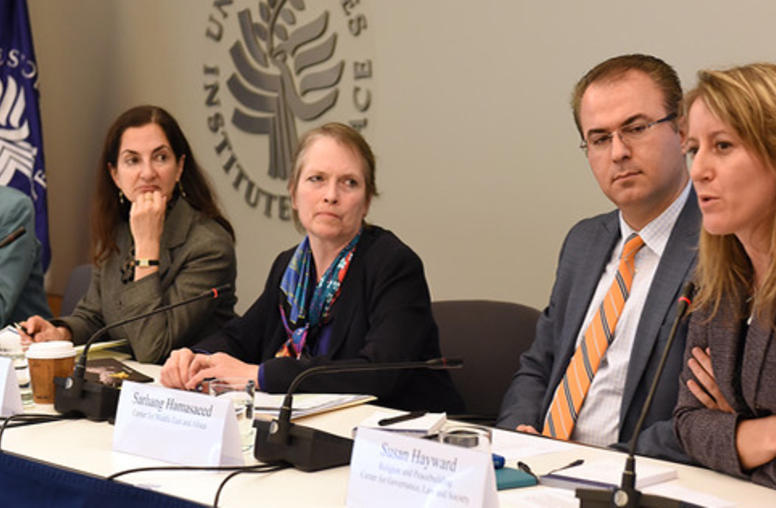
Reconciliation as the Road to Durable Peace
Apology. Confession. Truth-telling. Forgiveness. These are elements of reconciliation, perhaps the most important underpinning for turning a violent conflict into durable peace. Yet building peace is complicated by a reality that human cultures have no agreed definition of reconciliation. Indeed many may resist it as an imposed Western value, USIP scholars said.
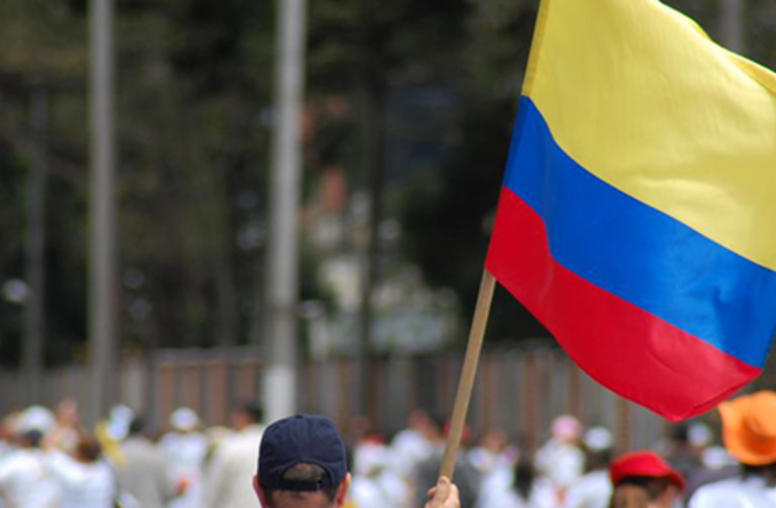
Q&A: Colombia Breakthrough a World Model for Peace Talks
Yesterday’s breakthrough in peace talks between Colombia’s government and rebels reveals the outlines of a final deal and puts the grueling process firmly back on track, says USIP’s Virginia Bouvier. The agreement may serve as a model for resolving conflicts elsewhere in the world, according to Bouvier, who heads the Institute’s Latin America programs.
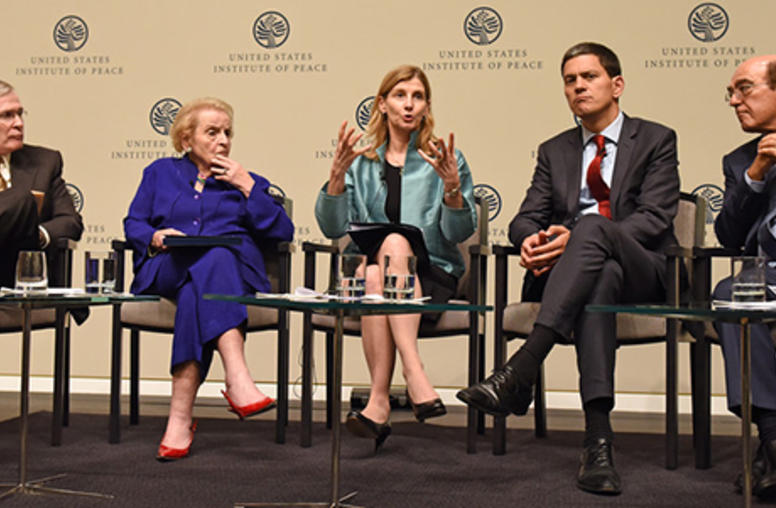
Europe’s Refugee Flood Shows Urgent Need for Action on Middle East
Former Secretary of State Madeleine Albright and former National Security Advisor Stephen J. Hadley joined U.S. Institute of Peace President Nancy Lindborg, a U.K. foreign secretary-turned humanitarian advocate and other experts in calling for U.S., European and other world leaders to accelerate assistance to refugees in the Middle East and reinvigorate efforts to end the conflicts that drive them out of their homes in the first place.
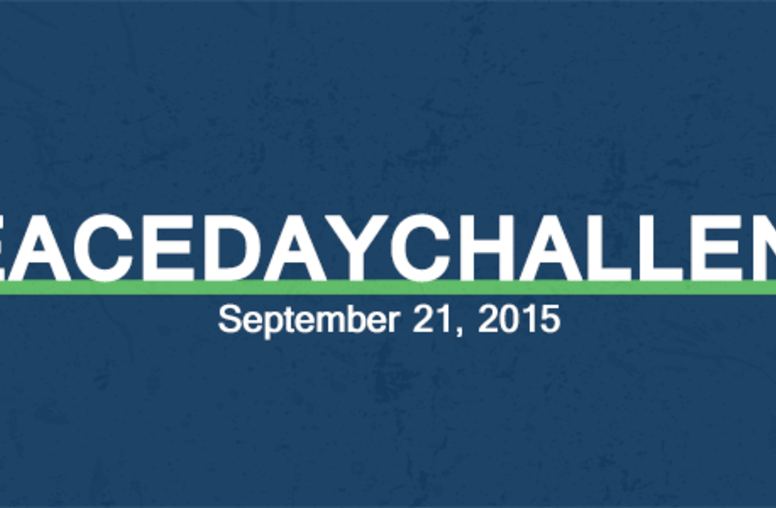
Nancy Lindborg Statement on the International Day of Peace
In 1981 the United Nations set aside September 21 as the International Day of Peace, dedicating the day to nonviolence across the globe. In the decades since, the world has emerged from a cold war, confronted ethnic conflict and witnessed protests evolve into revolution.
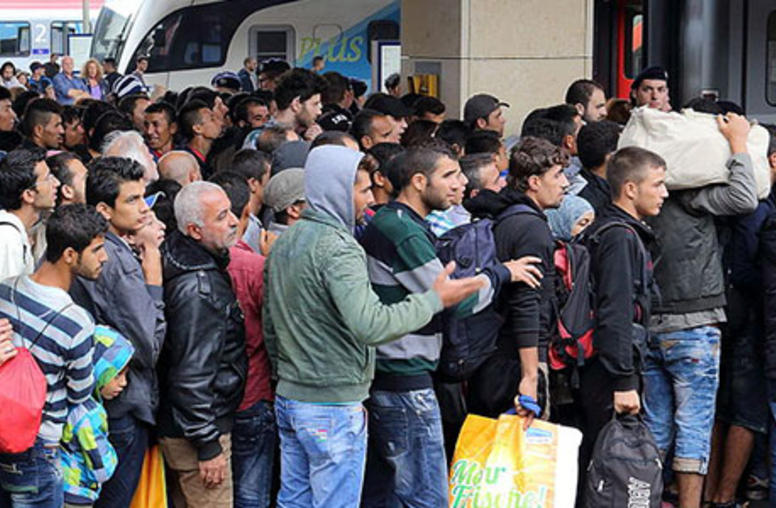
Stopping Europe’s Refugee Crisis at the Source
To halt the flow of people fleeing war, poverty, and oppression, the international community needs to redouble aid efforts where they're needed most.
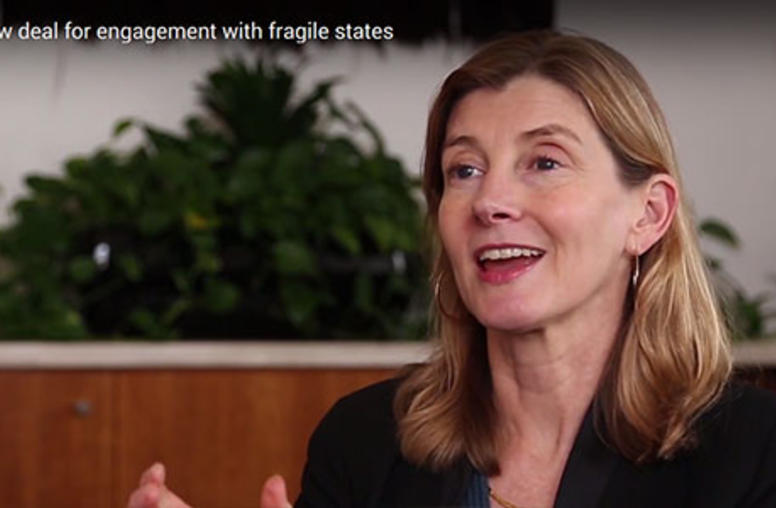
Nancy Lindborg: Finding common ground for development and defense
Development, diplomacy and defense must work together to help shepherd countries from fragility to peace and democracy. Nancy Lindborg shares her thoughts on bringing together the "three D's" for more effective crisis response.